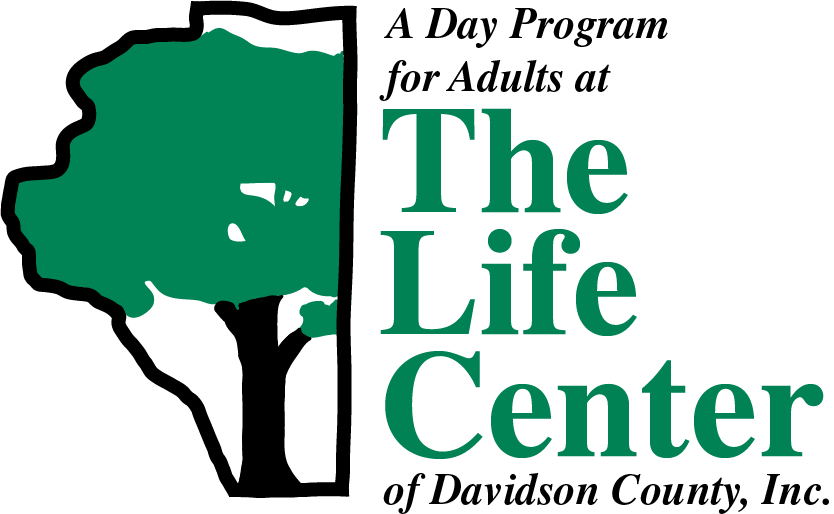Alzheimer’s Disease Programs Initiative
The Life Center’s Alzheimer’s Disease Programs Initiative (ADPI) offers many different services to support persons living alone with dementia, caregivers of persons living with dementia, and individuals with intellectual and developmental disabilities who are at high risk of developing dementia and their caregivers.
IDEA! Strategy for Behavioral Symptom Management
Learn more about how Alzheimer’s disease may create challenging behaviors and gain skills and knowledge to aid in managing those behaviors. These strategies can reduce stress for both the caregiver and the person living with dementia.


Adult Day Services Plus (ADS Plus)
ADS Plus allows caregivers to receive individualized support from trained expert staff on how to identify caregiving challenges, dementia education, and connect caregivers to resources. Respite care is available with limited scholarships for adult day services at The Life Center.
Supporting People with Intellectual and Developmental Disability and Dementia
Dementia can appear differently in individuals with Intellectual and Developmental Disabilities (IDD), and this educational program will provide knowledge and skills to best support individuals with IDD and their caregivers.


Living Alone and Connected Facebook Group
This online community, specifically for persons living alone with dementia, offers valuable resources, expert-led discussions, and virtual events to individuals living alone with dementia, Alzheimer’s disease, or other forms of memory loss.
Statistics on Higher-Risk Populations for Dementia
The Life Center is offering training and education sessions throughout the year! Please contact Catherine Pyle at cpyle@lifecenterdavidson.com to schedule a training at your church, workplace, organization, or community center.
Persons Living Alone with Dementia
Living alone as an older adult is a risk factor for dementia.
28% – 34% of people with dementia live alone.
20% of older adults living with cognitive impairments report being covered by Medicaid.
Intellectual & Developmental Disabilities and Dementia
IDD affects approximately 7.39 million people in the US according to a 2019 estimate by the University of Minnesota.
In the US, an estimated 9,000 adults with IDD may be affected by dementia. This number is expected to triple in the next 20 years.
Down Syndrome and Dementia
Down syndrome is one of the most significant risk factors for Alzheimer’s disease.
If adults living with Down Syndrome survive past age 40, some 25% will show clinical dementia. And if they survive past age 60, some 60% will show clinical dementia.
